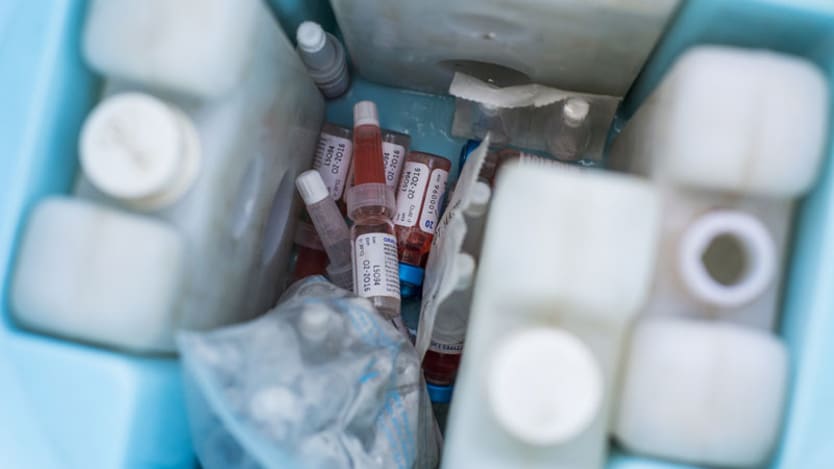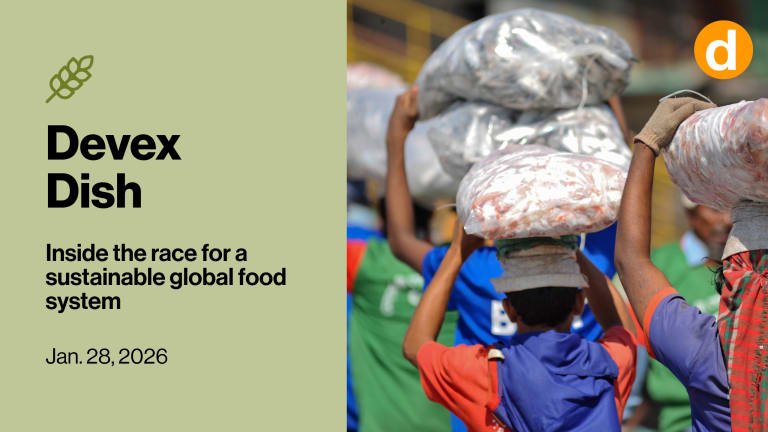
Market failures can occur both because of supply problems (lack of competition or product availability) or demand issues (not enough customers to guarantee a profitable market). But sometimes failures occur even when there is both strong supply and demand. Such a situation is now hampering efforts to improve immunization systems in low-income countries, prompting a need for a radical new solution.
In global health, one of the biggest challenges is ensuring that poor countries have sufficient health infrastructures in place to enable them to operate more effectively and to reach more people. At first glance, the problem appears to be a lack of innovative solutions to help countries bridge existing gaps in their health care. On closer inspection, however, it turns out there is no shortage of innovators with proven solutions, it’s just that despite a chronic need for their products they are struggling to generate demand and funding.
So, if countries are crying out for innovations and innovators are keen to scale up their solutions, what’s going wrong?
From a country perspective there is most definitely demand. Much of the existing immunization infrastructure in countries was originally built around the Expanded Program on Immunization, which was created in 1974 to provide universal access to vaccine coverage. While this supply chain architecture and cold chain equipment has served us well, today it is in dire need of modernization, expansion and replacement. Much of the equipment is the same as was used four decades ago — and it shows.
For example, in the 73 countries supported by my organization, Gavi, currently 20 percent of facilities that need cold chain equipment don’t have it, and of those that do 20 percent of the installed devices do not function. Where equipment does work, in the majority of cases it works very poorly, with 60 percent running the risk of exposing vaccines to excessive freezing or unacceptably high temperatures, both of which can cause damage. On top of this we see poorly designed supply chains that are outdated, with limited means of tracking data, both of which make it difficult to manage and optimize vaccine stock levels, track progress and monitor outcomes.
A ‘welcome boom’
“Sometimes, when it comes to making markets work, it’s not just a question of who or what you know. Sometimes you need both.”
— Dr. Seth Berkley, CEO, Gavi, the Vaccine AllianceGovernments of these countries recognize the need to replace and extend existing infrastructure but find themselves almost overwhelmed with options of how to do this, as well as the realization that it is likely to cost more. Given how old existing systems are, any kind of modernization will almost inevitably mean embracing new and possibly unfamiliar technologies, making it difficult to know which are most suited to their needs and which to trust.
Driven by incentivization programs such as TB Reach, in recent years there has been a welcome boom in global health innovation. From the introduction of a relatively simple bar code — a technology that is often taken for granted in wealthy countries, to wireless temperature monitors, cloud-based data systems or the use of drones for delivering medical supplies, there is almost too much choice.
The irony is that many of the businesses and entrepreneurs spearheading these innovations are struggling to take their products to scale. Even when they have very promising district-wide, or even nationwide, pilots, they can hit a wall when attempting to scale up commercially to the national or regional level. One of the main reasons for this is that companies and entrepreneurs can find it difficult to identify, access and engage the relevant decision-makers within governments.
Finding resources to go to scale
In recognition of this, earlier this year a new program was launched at the World Economic Forum in Davos called Innovation for Uptake, Scale and Equity in Immunization, or INFUSE. The aim is to identify exciting new technologies that are relevant to modernization and improvement of immunization systems, and then to use Gavi as a sort of informed middleman; to provide countries with a means of expert review of these innovative solutions, while giving service providers introductions to the right people within governments and helping them find the necessary resources to go to scale.
It’s early days, but so far very promising. After attracting 70 initial applications, an expert group of technical and market reviewers — including representatives from World Health Organization, UNICEF, International Telecommunication Union, PATH, IBM, UPS, Vodafone and Philips, among others — identified seven projects as promising pacesetters, with potential to positively disrupt markets and shape the future of immunization.
With a different theme to be announced at WEF each year, this year’s is based around “immunization system data, availability, quality and usage,” with those shortlisted including an electronic immunization registry that links automated real-time stock management data in order to send out SMS immunization reminders to parents, and a digital vaccination card stored in a simple necklace worn by infants. There was even a clever solution to the age-old problem of intermittent power supply at cold chain points, which involves taking advantage of the how ubiquitous mobile phone base stations are now, even in the poorest of countries.
With around 135,000 supply chain facilities in Gavi-supported countries alone, the hope is that INFUSE will inspire new and appropriate technology, help governments make informed choices and realize the potential of these kinds of innovations in transforming vaccine supply chains in low-income countries.
In the process Gavi stands to gain from this partnership, because scaling up innovations will ultimately help us achieve our goal of reaching a further 300 million children in poor countries with vaccines, saving 5 million to 6 million lives. Sometimes, when it comes to making markets work, it’s not just a question of who or what you know. Sometimes you need both.
Making Markets Work is an online conversation to explore what’s being done to make global health care markets accessible to people at the base of the pyramid. Over 10 weeks, Devex and its partners — The Abraaj Group, Philips and Population Services International — will amplify the discussion around effective health financing, analyze key challenges blocking universal market access in the health care supply chain, and explore the key strategies to make markets more effective. Join us as we look at this important issue, and share your thoughts by tagging #MakingMarketsWork and @Devex.
Search for articles
Most Read
- 1
- 2
- 3
- 4
- 5








